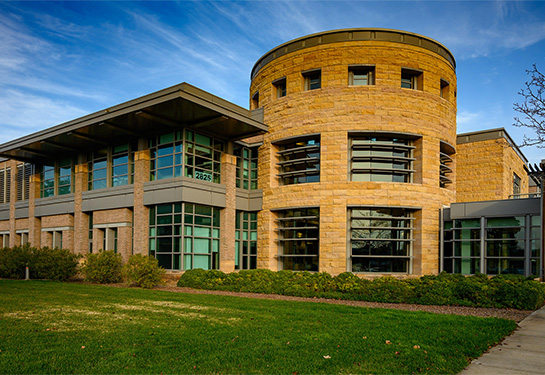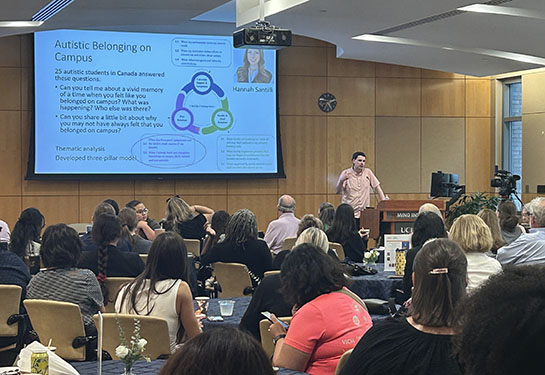Lecture will highlight integrated school-home intervention for students with ADHD
Linda Pfiffner of UCSF to discuss evidence-based approach as part of MIND Institute’s Distinguished Lecturer Series.
A May 8 lecture at the UC Davis MIND Institute will focus on evidence-based treatment for attention-deficit/hyperactivity disorder (ADHD) that involves a school-to-home partnership. The talk by licensed clinical psychologist Linda Pfiffner is part of the MIND Institute’s well-known Distinguished Lecturer Series.
Pfiffner directs the Hyperactivity, Attention and Learning Problems Program at the University of California, San Francisco. She also co-directs a National Institutes of Health T32 Clinical Services Research Training Program and is a professor in the Department of Psychiatry and Behavioral Sciences.
In this Q&A, Pfiffner shares more about her research and upcoming presentation, which is titled “ADHD: Extending Evidence-Based Treatments From Clinics to Schools.”
What will be the main focus of your lecture?
My talk will center on the Collaborative Life Skills (CLS) Program. This is a school-to-home intervention for youth with ADHD that is delivered by school clinicians. CLS combines three evidence-based treatments addressing common challenges for ADHD:
1. Parent training
2. A school-home daily report card with behavioral consultation for teachers
3. Organizational and social skills training for children
The goal of CLS is round-the-clock support of child behavior in an active partnership of parents, teachers and school clinicians. Our research has shown CLS to be effective, and our studies also suggest that the results are sustained across school years.
How do schools support students with ADHD?
Most students with ADHD are not receiving evidence-based treatments. Some may receive individual and group-based counseling services or classroom-based accommodations. However, these services typically do not include evidence-based teaching or parenting strategies, which are crucial for supporting youth with ADHD at school and home.
What are the major barriers to helping youth with ADHD at school?
Most evidence-based treatments for ADHD have been developed in clinic settings and there is little training for school providers in how to deliver them in schools. Even when training is provided, it usually fails to include the most effective strategies needed, like ongoing coaching, supervision and feedback. Policies that emphasize funding for school mental health and other systems of care are needed so that these services and training are accessible to all youth and families who need them.
Why did you decide to focus your work in this area?
My work is guided by a longstanding desire to increase access and uptake of evidence-based practices for youth with ADHD and their families. We know that these interventions can have a powerful, positive impact on children with ADHD. But most of these services are provided in specialized clinics, which limits access for most children with ADHD. Also, clinic-based behavioral interventions seldom translate to improvements for children at school. This is because treatments are most effective where and when difficulties arise — such as school or home. This is why we promote evidence-based practices through services delivered at school and home. The outcomes we’ve seen are encouraging and fuel my desire to continue this work.
What are you looking forward to during your MIND Institute visit?
I am honored to be invited to participate in this preeminent lecture series. I am looking forward to the unique opportunity to engage with the academic community of faculty and fellows, as well as community providers and families.
UC Davis MIND Institute Distinguished Lecturer Series
When: Wednesday, May 8 at 4:30 p.m.
Who: Linda Pfiffner, UCSF
Talk Title: “ADHD: Extending Evidence-Based Treatments From Clinics to Schools”
Where: UC Davis MIND Institute Auditorium, 2825 50th St., Sacramento
All lectures are free and open to all. No reservations are needed. Seating is available on a first-come, first served basis. Street parking is available.
The UC Davis MIND Institute in Sacramento, Calif. is a unique, interdisciplinary research, clinical, and education center committed to deepening scientific understanding of autism and other neurodevelopmental conditions. It is a highly collaborative center, bringing together families, researchers, clinicians, community leaders and volunteers with the common goal of developing more personalized, equitable, and scientifically proven systems of support and intervention. The institute has major research efforts in autism, fragile X syndrome, chromosome 22q11.2 deletion syndrome, attention-deficit/hyperactivity disorder (ADHD) and Down syndrome. More information about the institute and its Distinguished Lecturer Series, including previous presentations in this series, is available on the Web at mindinstitute.ucdavis.edu.




